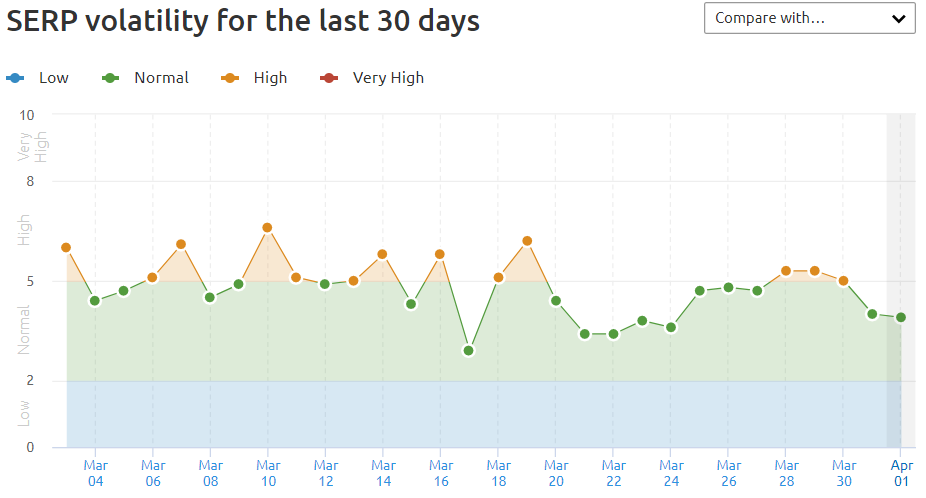April 2, 2021
| Article | by Bari Friedman Eisenberg | Search Engine Optimization
The State of Search: Core Web Vitals Becoming a Ranking Factor
During the month of March, our algorithm sensors reported significant turbulence in the search results and changes in organic traffic, on multiple occasions. While the fluctuations are consistent with those experienced during a Google algorithm update, the search engine has not confirmed the occurrence of one (or any). Additionally, the featured snippets that dropped out of the search results in February appear to have returned around March 11th, which may have contributed to some of the movement experienced around that time:

Early analysis indicates that Google may be placing a larger emphasis on understanding user intent and better matching results with user queries. Google’s focus on user intent has been a trend that we’ve seen consistently over the past few months.
Google Tips & News
- Blog Posts - Focus on quality versus quantity. Each page should offer some sort of value to the user. John Mueller takes it a step further by sharing the following insight and advice, “Google doesn't count your blog posts. I'd focus on quality rather than quantity. Make something truly awesome, unique, compelling, & insightful. If that's a single page, it's a single page. More pages, or more words on a page, don't make something better...”
- Core Web Vitals (CWV) - According to Google, improving a site’s page experience is always a good idea but CWV may only offer a small boost when it comes to ranking better in Google. The primary ranking signal that sites should continue to prioritize is the relevance and quality of content.
- Local SEO - Google My Business has added 25 new categories, most of which apply to the medical field.
What This Means for You
In preparation of Core Web Vitals becoming a ranking factor--albeit a small one--this May, we have been closely reviewing CWV reports in Google Search Console and making recommendations to help our clients improve these site metrics. While a faster site offers a better user experience, a site will still struggle to rank well if its content lacks in relevance and quality. Before publishing new content on your site, consider the following questions and review those listed in Google’s guidance on building quality sites:
- What value does this content offer users, customers, etc.?
- How is this content different from and better than what has already been published online on this topic?
- Is this content written by an expert on the topic? How will a user know this?

